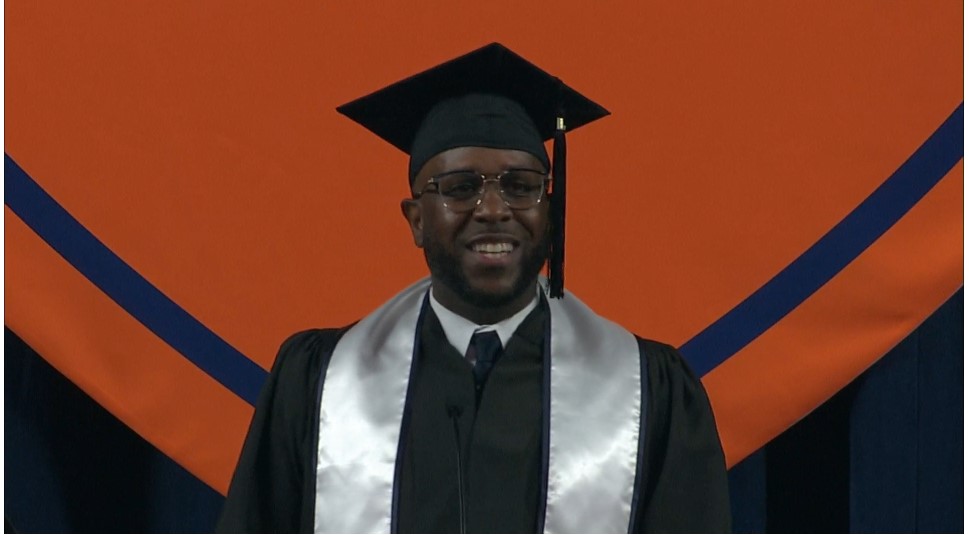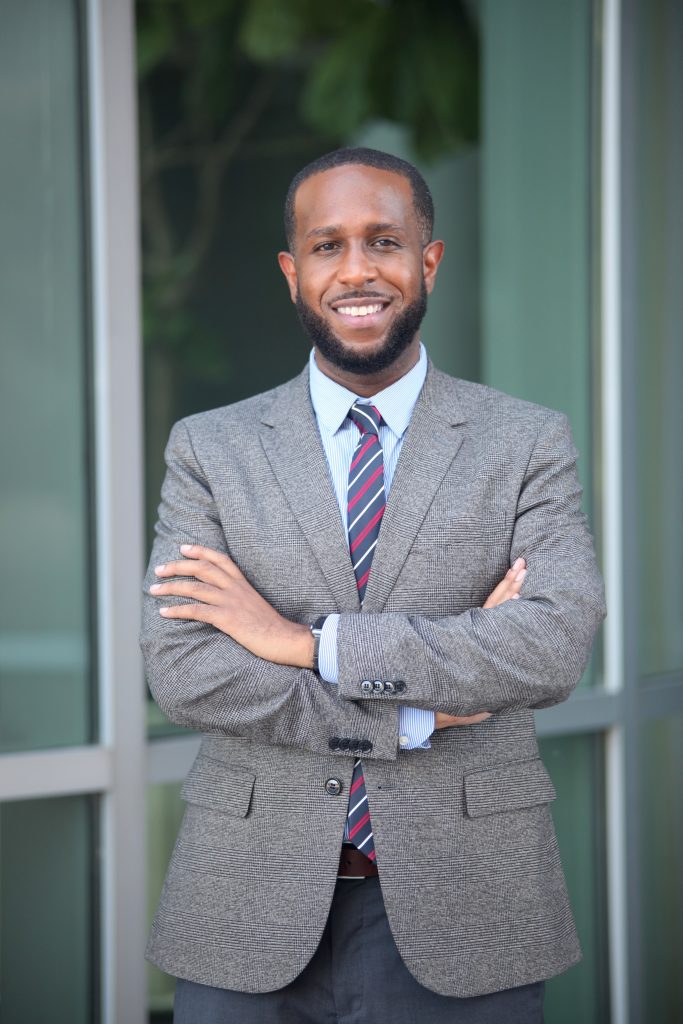Anwar Nasir ’06

Rising Tides
Trailblazing symphony executive Anwar Nasir shares his success story with students, encouraging them to “Dream Big”
Anwar Nasir ’06 vividly remembers sitting at his own College of Visual and Performing Arts Convocation as a graduating senior. “It doesn’t feel that long ago,” he says.
He drew from those feelings of anticipation, excitement and nervousness when he addressed 2023 graduating seniors at the VPA Convocation last month. His message: “This is only the beginning,” he says. “I wanted to encourage them to think big and dream big and to impart that their path forward will not be a direct one, but a squiggly line at best, but that they should push through and go after what it is that they want,” he says.
Nasir is executive director of the Louisiana Philharmonic Orchestra, one of only a handful of Black leaders of classical orchestras. “Being a person of color, it was meaningful to give that address and know that there were students who look like me who could relate to my story,” he says. “It was a big thing to just encourage and uplift and celebrate this milestone with them.”
A native of Philadelphia, Nasir chose Syracuse University after attending a Spring Multicultural Weekend. “I felt connected and like a had a sense of community right away,” he says. “They also showcased all of the arts organizations, which gave me a sense of how I might spend my time over the next four years.”
In high school, Nasir had been a member of the concert band, playing piano, trumpet and trombone, and a dancer. He came to Syracuse University with an interest in broadcast journalism and immediately got involved with WAER, CitrusTV and writing for the Black Voice, and also joined the Kalabash Dance Troupe.
It didn’t take long for Nasir to realize broadcast journalism wasn’t a good fit. He majored in communications and rhetorical studies in VPA and continued following his varied interests, joining DanceWorks and the African American Male Congress and helping found the Black Reign step team. He also became an Our Time Has Come Scholar, which provided financial support as well as a community of peers.
“Unintentionally, I kept gravitating back towards the arts,” says Nasir. “By the time that I graduated, I knew that there was going to be a career in the arts for me, but I didn’t know exactly what that was going to be.”
Nasir moved to Atlanta and began working as a dancer—mostly working with studio acts and doing live gigs—while also volunteering and working in the box office at the Atlanta Ballet. He joined the dance faculty and spent five years as associate director of ticketing and patron services, an experience that fostered an interest in the administrative side of the arts organization. That led to a marketing position with the Los Angeles Philharmonic, where “I got bit by the orchestra bug,” he says.
 After several years, Nasir was hired as vice president of marketing and communications for the Omaha Symphony, later becoming chief revenue and advancement officer. In 2021, he was named executive director of the Louisiana Philharmonic Orchestra. “Being able to see how arts organizations work in different communities has been really fascinating for me,” he says. “Every city is unique, and they all relate to their communities in different ways.”
After several years, Nasir was hired as vice president of marketing and communications for the Omaha Symphony, later becoming chief revenue and advancement officer. In 2021, he was named executive director of the Louisiana Philharmonic Orchestra. “Being able to see how arts organizations work in different communities has been really fascinating for me,” he says. “Every city is unique, and they all relate to their communities in different ways.”
New Orleans, a predominantly Black city rich in Caribbean and French influences, is known for music. “I don’t have to convince people here to like the music, but we do have to fit into the overall cultural fabric of the city and adapt to different challenges of this market,” he says. “That keeps me on my toes and allows me to tap in to in different skills to figure out what success looks like in this city.”
When hired, Nasir became only the second person of color to lead a major American orchestra. “In the hundreds of years that orchestras have been in this country, that I’m only the second person to lead a major one is, is really astounding to me,” he says.
Being trailblazer can be “incredibly isolating,” so Nasir believes it’s important for the community to support and uplift each other as much as possible. While in Omaha, he co-founded the Black Arts Leadership Alliance to build community and provide resources, locally and beyond, and he co-chairs the League of American Orchestras’ Equity, Diversity and Inclusion group. “There are very few people of color in leadership or administration in arts organizations,” he says. “I am happy to show that there can be a path in this work for people who look like me.”
That’s another reason giving the VPA Convocation address was personally meaningful.
“I’m all about rising tides,” he says. “Any time that we can find ways to lift each other up, that to me is what success looks like.”
